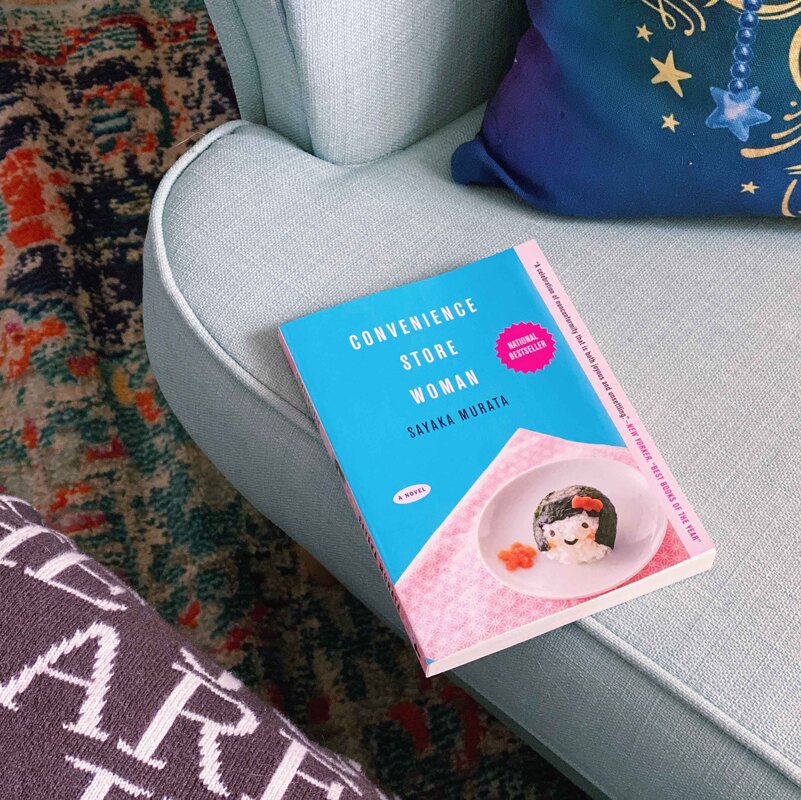|
5 stars
Call me an oddball: I loved this story. Simple exterior, complex interior. And, best of all, unforgettable. Concept: ★★★★★ Character: ★★★★★ Pacing: ★★★ Keiko Furukura is a woman who lives on the edges of everyone's "normal" expectations. She's worked in a low-level, part-time position at a local convenience store for decades with no advancement or wish for change. She is single, lives alone, and has no desire for change in her personal life either. In fact, Keiko's life could be defined quite simply as: She is content as she is, and she does not wish for change. However, as with many people who live outside of the bounds of "normal" societal expectations, the rest of Keiko's social and familial sphere cannot live with this reality. Even though it doesn't affect them, even though Keiko is happy and able to pay her bills, the rest of the world is constantly asking her for more, for "normal," and for Keiko to change. As Keiko herself put its, "the foreign body" is either assimilated or eliminated. So Keiko tries to assimilate based on other people's expectations. Convenience Store Woman is Keiko's journey toward assimilation and selfhood. And she just might find out how to achieve personal joy along the way. I thought this story was simultaneously extremely endearing and off-putting at the same time. (Much like Keiko herself, perhaps.) Keiko's life and internal motivations are intentionally on the off-beat for the rest of society, and that friction point is the keystone of this novel's entire existence. If it rubs you the wrong way, then it is telling you that this small story has a message worth exploring. Especially in our modern times, where so many people are exploring different lifestyles, ways of operating in society, and finding their own joy in the human experience—this is excluding discussions of identity, self-presentation, and sexuality, as that's not the core of this novel--I think Convenience Store Woman is a reflection on the bizarre nature of our current times. Who cares if Keiko is unmarried, alone, and working a "dead-end" job? Why does it bother others, when it doesn't bother Keiko and affects no one in a negative way? Why do we, as a society, value the "normal" above all else? Even when—or maybe, especially when—our values of "normal" are extremely bizarre when viewed from a distance? I thought one of the most ground-breaking and fundamental moments in this novel was when Keiko is internally examining the behaviors of her sister and friends when it comes to a relationship decision that she makes in this novel. (Omitting the details to avoid spoilers.) Keiko's made a choice, and it's arguably made her daily life and future much worse. BUT, because it's a more "normal" decision that others know how to react to, the reactions from her friends and family are satirically positive. They're thrilled, even with this clearly negative life choice! Keiko becomes confused, quite logically, at the reasoning behind this. It's not a good choice for her, and she is not happy with it, but their reaction is so overwhelmingly positive—which is a reaction Keiko is unused to seeing--that is makes Keiko believe that this choice is what she "should" continue to make. This is just one example of societal reflection used throughout the novel that I found so fascinating to read. Such an interesting social commentary. We've seen this type of concept before in other literary works, of course, but there is something so "of the now" about Convenience Store Woman and its endearingly likeable edge. A very clever novel with a surprising amount of heart.
0 Comments
Leave a Reply. |
Amy Imogene ReadsJust someone looking for her own door into Wonderland. Categories
All
Archives
July 2024
|


 RSS Feed
RSS Feed
